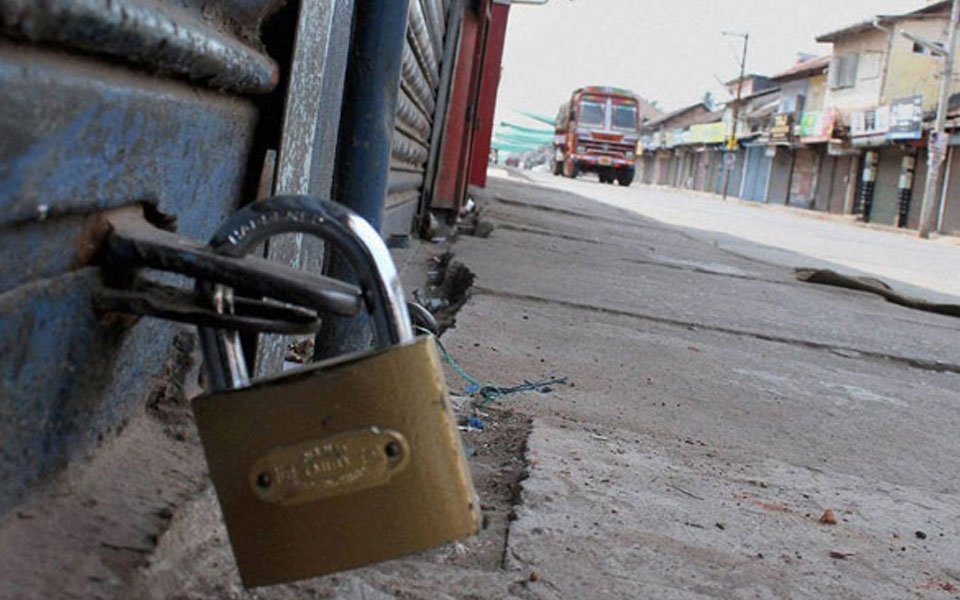Is it a constitutionally granted right of the upper caste people to exploit the dalits? Is there an attempt to weaken the act against atrocities on Dalits? The bharat bandh that was called for on Thursday in northern states of India gave rise to such a suspicion and fear. The bandh was called to protest against the concurrence given by the Supreme Court to the atrocities act tabled by the central government.
When an attempt was made to weaken the act, there were massive protests in north India and the dalit uprising had happened across the country. They had even called for a bundh. Violence had erupted. Police and Sangh parivar together had pounced upon the dalits together. Some dalit leaders died in the ordeal, facing bullets at the hands of cops and the blows at the hands of sangh parivar members. Central government woke up to this pretty late and brought about an amendment to the act. As a result, the stronger castes have taken to streets now.
On one hand there are conspiracies that are being hatched against the reservation. As a result of this, the majority communities began seeking a share in the pie too. Politically, constitution does not allow the stronger religions to benefit from reservation. But this is a part weakening the dalit reservation share, as desired by Sangh Parivar. Beyond this, if one takes into account how many dalits have risen above their penury owing to reservation, the results would be disappointing. The central government is looking at ending reservation instead of making the constitutional provision stronger than before and effective implementation of that.
Union ministers say ‘there are no government jobs. What would you do with reservation?’ They forget the fact that reservation in private sector is as much needed and only that can aid comprehensive growth in the wake of government organisations getting privatized. This apart, strong communities are seeking minority status for their own reasons in a way that the carnivores would ask for two more incisors to dig deep into the flesh. The final mark of this attempt is to weaken the reservation.
As a second phase of this, the focus has now shifted on atrocities act that provided protection to Dalits so far.The Supreme court set out to weaken this owing to the fact that this was being misused. But the court missed out cleverly on the fact that the assault on dalits was increasing across the country. Though there are repeated reports on continued attack on dalits, the court said dalits were misusing this legal provision to trap the innocents in legal issues. This seemed like a massive problem. Naturally this stance attracted massive protests. Sensing trouble, the government pretended to bring in some amendments.
Now the protest is organized by the subsidiaries of Sangh Parivar. They are insisting that the atrocities act should not be further strengthened. This led to mob violence and few were left injured too. Through this, the communities are seeking rights to continue assaulting the dalits as times were before. They have not been able to tolerate the social and political progress of the dalits. The law comes in the way of attacking them physically. Hence, they have protested against the atrocities act.
The government should have initiated action against this anti-constitutional bandh. They should have registered case against organisations that organized the protest. But the government is projecting this as a constitutionally approved act.
The government is willing to call a street protest as ‘bharat bandh’ and is willing to respond to this. Sumitra Mahajan the speaker of Lok Sabha has spoken in a rather insensitive manner about this and has even defended an anti-constitutional protest in spirit drawing an analogy of a chocolate being snatched from a child. She has even said if wrong has been done to the minorities, it does not mean the others must be made scape goats to compensate for that. This is a fine example of how Sumitra Mahajan and the others have understood the minorities act.
Atrocities act is not a chocolate issued to the dalits. This is a constitutional right. It is not a compensation given by anyone. Democracy and constitution are the covers that need to guard this right. But taking Mahajan’s words, it becomes very clear that BJP has given some kind of a chocolate and will soon retract it. This attempt to push the communities into Manu’s time, it is necessary to protest against this. Else, there would be opposition to dalits touching water or sitting in the same schools for education.
Let the Truth be known. If you read VB and like VB, please be a VB Supporter and Help us deliver the Truth to one and all.
Kalaburagi: Four men have been arrested in Kalaburagi on charge of hacking a man with lethal weapons and pelting stones at him under the limits of Station Bazaar Police Station recently.
According to police sources, Anand Jalak Shinde (34), Ashitosh Jalak Shinde (30), Imran Mehboob Sheikh (28) and Sohaib Anwar Qureshi have been arrested. The men are accused of the brutal murder of Syed Mehboob, a resident of Station Bazaar Upper Line Hamalawadi in the city.
An FIR was filed by the Station Bazaar Police Station based on a complaint given by Syed Ismail, father of the deceased Syed Mehboob.
Following quick probe, the police team successfully arrested the suspects within 24 hours. The arrested men were produced in court and have been sent to judicial custody.
The City Police Commissionerate has appreciated in an official release the police team’s quick solving of the murder case and arrest of the four men accused of murdering Syed Mehboob.





